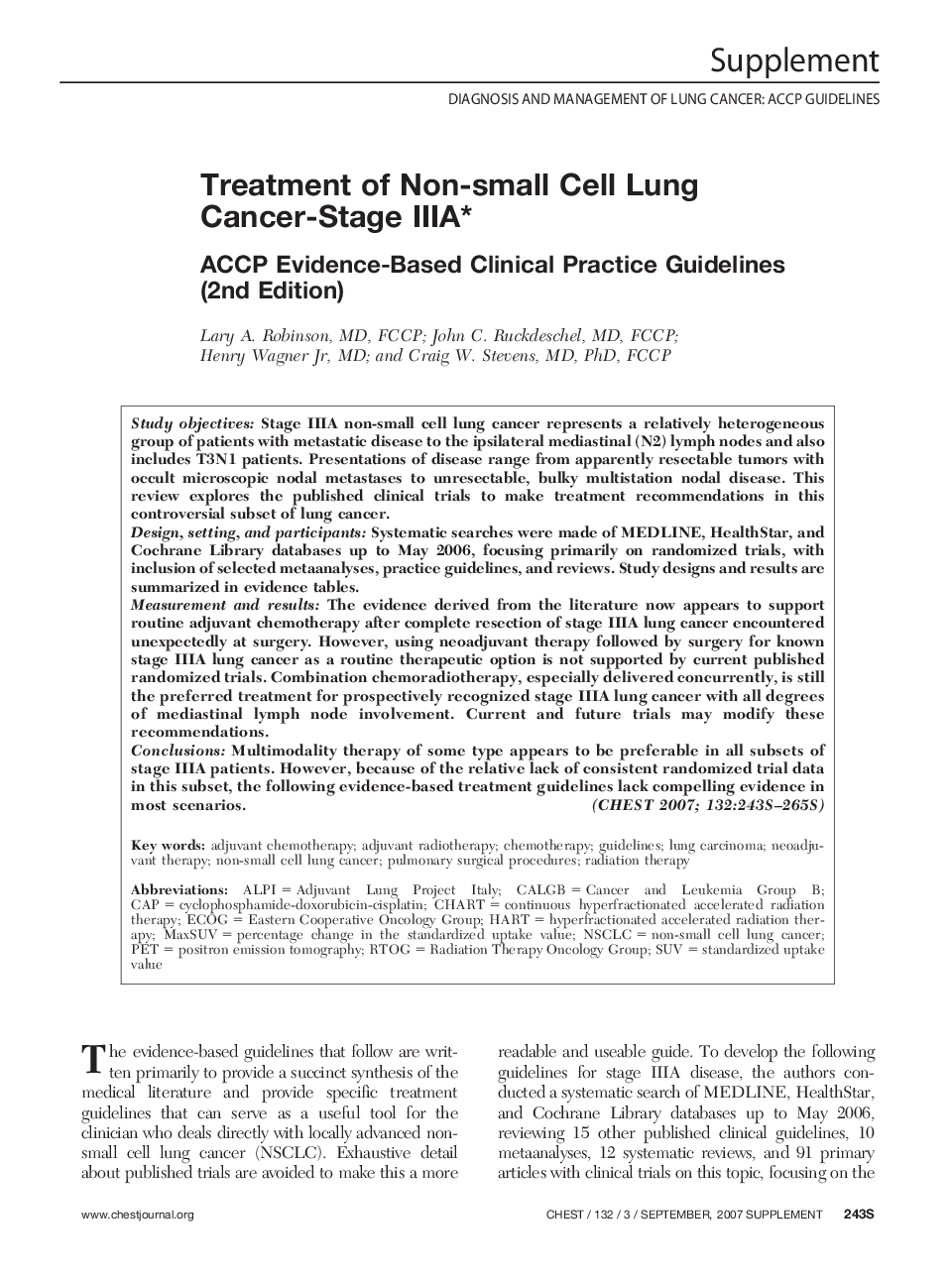| Article ID | Journal | Published Year | Pages | File Type |
|---|---|---|---|---|
| 2906399 | Chest | 2007 | 23 Pages |
Study objectivesStage IIIA non-small cell lung cancer represents a relatively heterogeneous group of patients with metastatic disease to the ipsilateral mediastinal (N2) lymph nodes and also includes T3N1 patients. Presentations of disease range from apparently resectable tumors with occult microscopic nodal metastases to unresectable, bulky multistation nodal disease. This review explores the published clinical trials to make treatment recommendations in this controversial subset of lung cancer.Design, setting, and participantsSystematic searches were made of MEDLINE, HealthStar, and Cochrane Library databases up to May 2006, focusing primarily on randomized trials, with inclusion of selected metaanalyses, practice guidelines, and reviews. Study designs and results are summarized in evidence tables.Measurement and resultsThe evidence derived from the literature now appears to support routine adjuvant chemotherapy after complete resection of stage IIIA lung cancer encountered unexpectedly at surgery. However, using neoadjuvant therapy followed by surgery for known stage IIIA lung cancer as a routine therapeutic option is not supported by current published randomized trials. Combination chemoradiotherapy, especially delivered concurrently, is still the preferred treatment for prospectively recognized stage IIIA lung cancer with all degrees of mediastinal lymph node involvement. Current and future trials may modify these recommendations.ConclusionsMultimodality therapy of some type appears to be preferable in all subsets of stage IIIA patients. However, because of the relative lack of consistent randomized trial data in this subset, the following evidence-based treatment guidelines lack compelling evidence in most scenarios.
